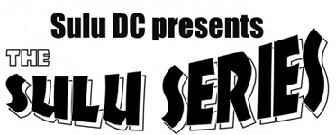Community Voices | Sulu DC

Since November 2009, Sulu DC has been lighting up the nation's capital with its monthly performance showcases, featuring the talents of local Asian American spoken word poets, musicians, and other performance artists. Modeling itself after the New York-based Sulu Series, which ran out of the Bowery Poetry Club from 2005 until late 2010, Sulu DC derives its name from Star Trek's Hikaru Sulu (the first Asian American character to enter space), from a remote island in the Philippines, and from the word sulo, which, in some Philippine dialects, means 'light.' Under the direction of a team consisting of arts organizer and spoken word pioneer Regie Cabico; poet, dancer, and independent curator Simone Jacobson; spoken word poet Jenny C. Lares; DC's Young & Powerful City Chair Brian Wang; and hip-hop/spoken word artist and youth organizer Alex Cena, Sulu DC strives to provide visibility and community to AAPI spoken word and multidisciplinary artists in the DC area, both through its performance showcase series, and through its collaborations with other organizations (both local and national).
 In its first year of existence, Sulu DC has risen quickly to prominence in the DC arts scene, garnering not only a story in the Washington Post but also the attention of both the NEA and the White House Office on Asian and Pacific Islander Affairs. Since its inception, the organization has featured more than 50 artists in its showcases, and has collaborated with similar groups in Philadelphia and New York in order to foster creative exchange between AAPI artists living in all three cities. On average, Jenny C. Lares estimates, attendance at any given event can reach well over 100. It is the magnetic strength of the organizers' vision, coupled with the strategic timing of its emergence, that is no doubt largely responsible for the dynamism of Sulu DC's appeal, as the organization, according to both Jacobson and Lares, fulfills a crucial role in the DC arts scene.
In its first year of existence, Sulu DC has risen quickly to prominence in the DC arts scene, garnering not only a story in the Washington Post but also the attention of both the NEA and the White House Office on Asian and Pacific Islander Affairs. Since its inception, the organization has featured more than 50 artists in its showcases, and has collaborated with similar groups in Philadelphia and New York in order to foster creative exchange between AAPI artists living in all three cities. On average, Jenny C. Lares estimates, attendance at any given event can reach well over 100. It is the magnetic strength of the organizers' vision, coupled with the strategic timing of its emergence, that is no doubt largely responsible for the dynamism of Sulu DC's appeal, as the organization, according to both Jacobson and Lares, fulfills a crucial role in the DC arts scene.
"There's often a disconnect between art, activism, and politics right here in the nation's capital," Lares explains, ". . . As a poet and performer, my art, activism, and politics are inseparable. In many ways, I think Sulu DC embodies those intentional ties between empowering, inspiring, and advocating for [AAPI] communities. We do it through art, through demanding and creating this space for [AAPI] voices and stories to be at the center and forefront and not as invisible, afterthoughts, or footnotes. "
Sulu DC also serves as a mirror by which DC's burgeoning AAPI population can see themselves reflected onstage. Simone Jacobson refers to census figures which show an increase in the number of AAPI residents over the last five years. Increasingly, she says, "AAPI peoples [in DC] are in need of the support of diverse audiences to continue to be able to have a platform for expression . . . In presenting artists from the Asian and/or Pacific Islander diaspora," she says, "we are attempting to provide a new frame of reference for DC."